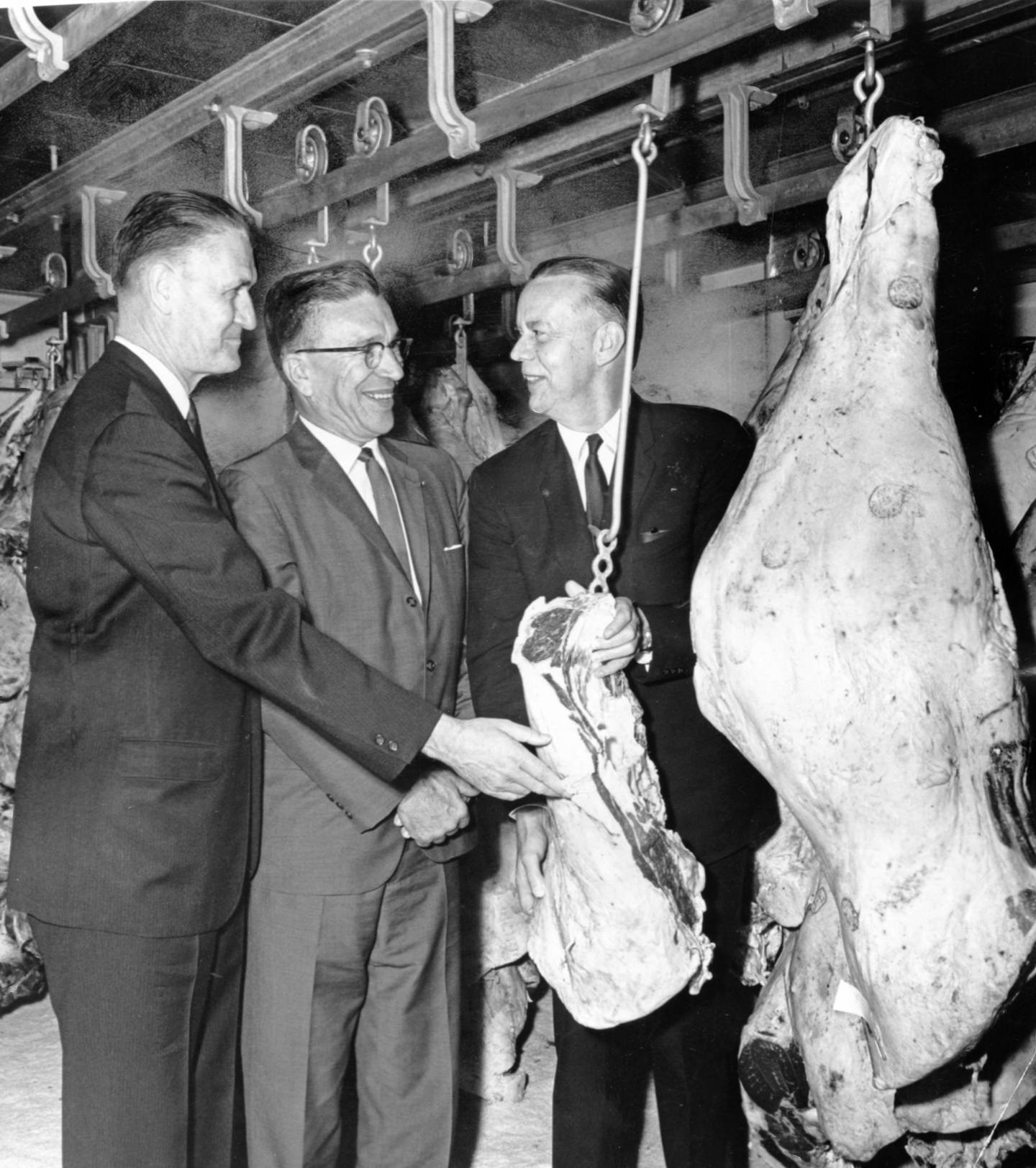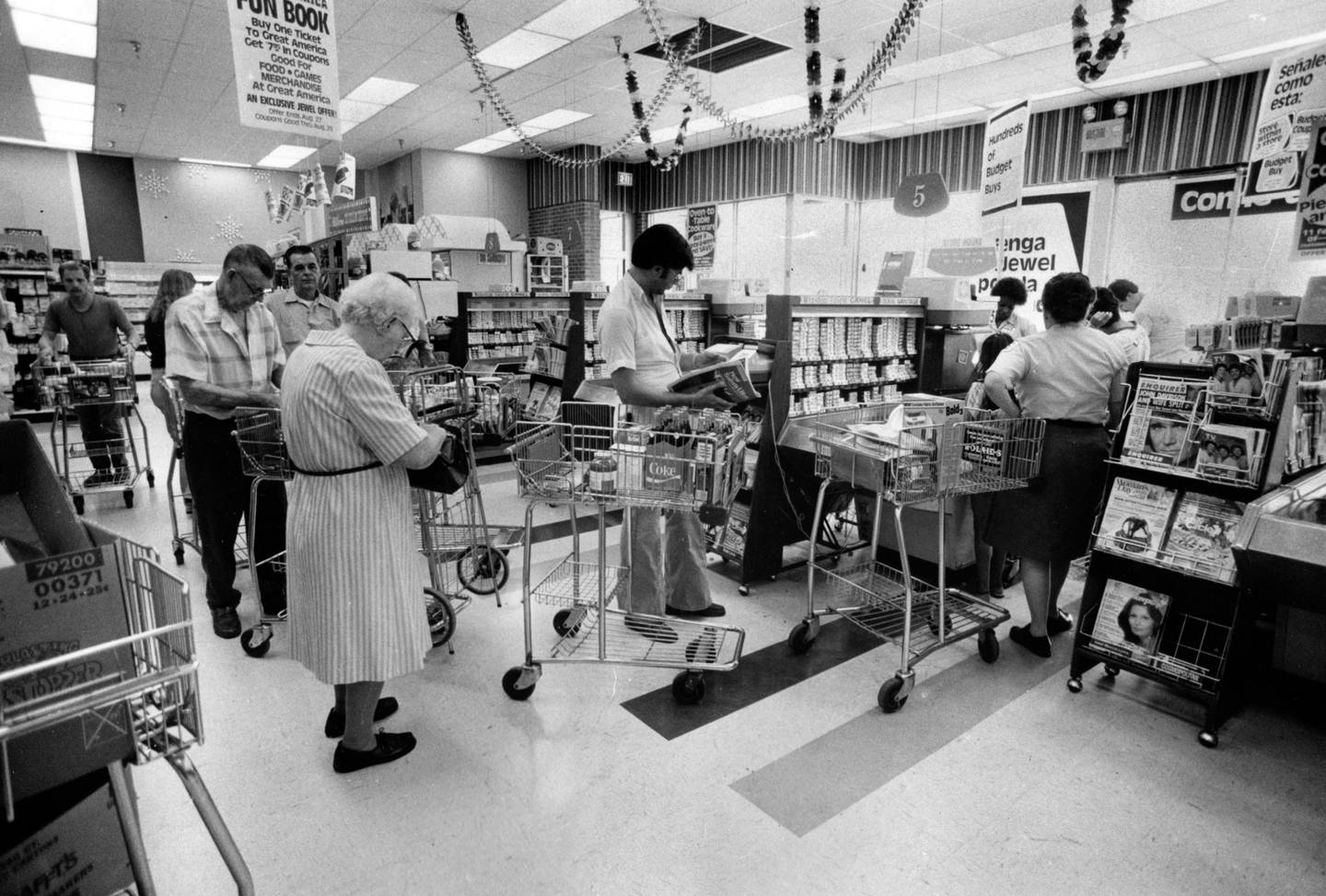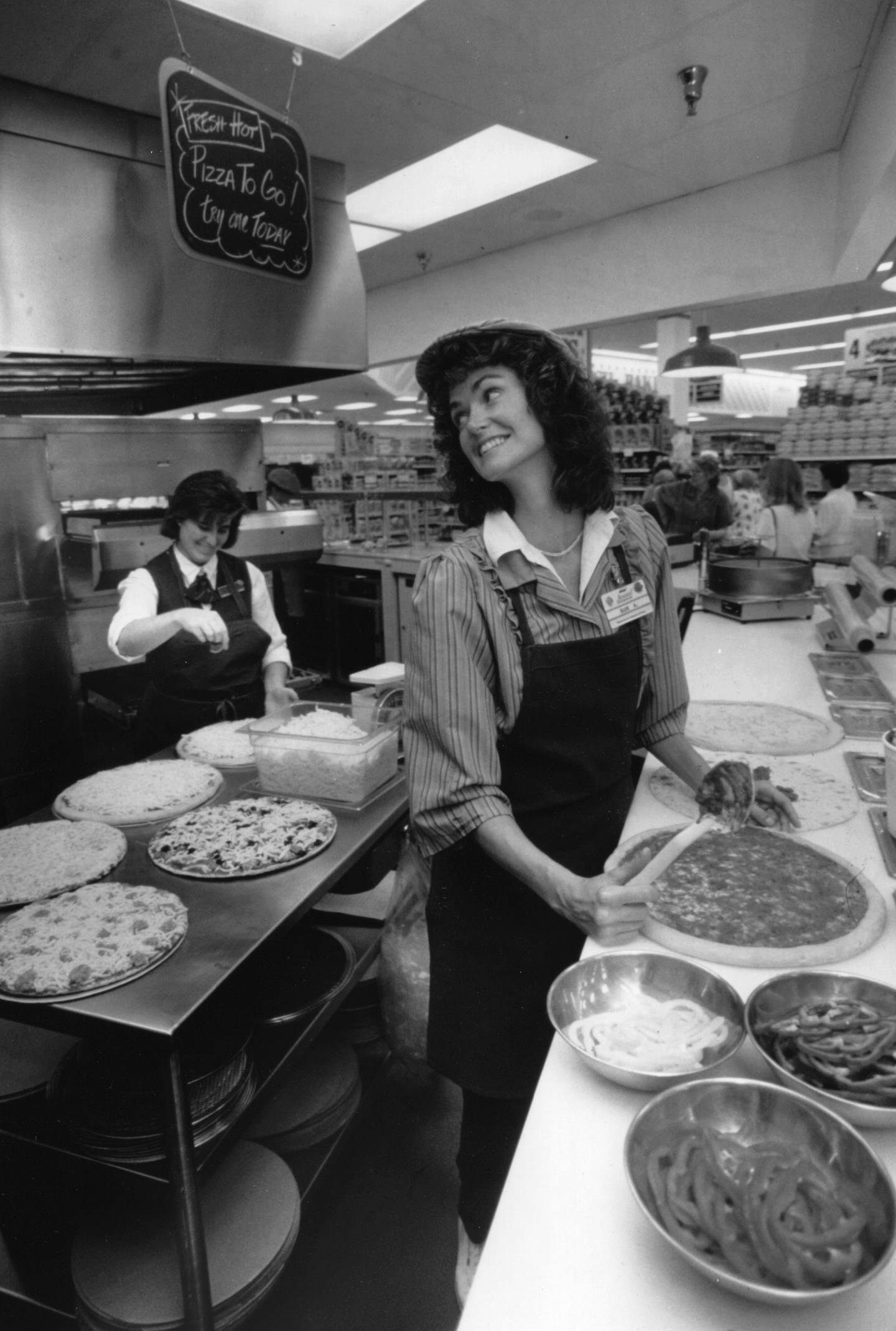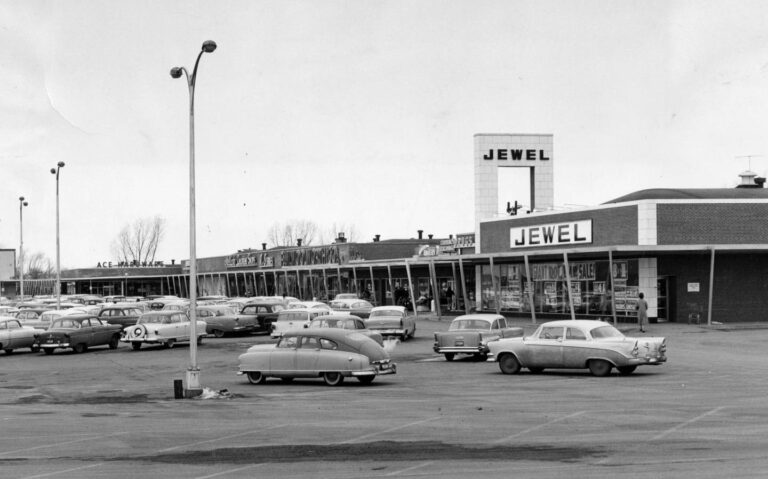Jewel was born in Chicago in 1899, and has positioned itself throughout its history as a uniquely Chicago company. But since the 1980s, the company has undergone a series of acquisitions, paralleling consolidation in the grocery industry as a whole.
It’s owned by Boise-based Albertsons, the second-largest traditional grocery retailer in the country, after first-place Cincinnati-based Kroger.
Advertisement
If Kroger succeeds in plans to acquire Albertsons, Jewel will complete a transformation from a one-man horse-drawn wagon delivery service to a part of a grocery behemoth only rivaled in size by Walmart.
The proposed Kroger-Albertsons deal, which stands to face heavy scrutiny from federal regulators, has raised the eyebrows of some antitrust experts and politicians who are concerned about its potential impact on grocery prices at a time when the cost of food has already skyrocketed.
Advertisement
Kroger, for its part, says it will take the opportunity to lower grocery prices. Kroger has said it has no plans to change the names of Jewel stores, but stores that are sold off to other companies at the behest of federal regulators would be at the mercy of their new owners.
Frank Skiff, the son of a grocer, leaves his wagon route company job to launch a door-to-door delivery service with a horse, wagon and $700 of working capital, according to Tribune archives.
Skiff enlists his brother-in-law, Frank Ross, as a partner a couple of years later. They sell coffee, tea, spices and extracts from door to door, giving out premium coupons as they sell.
“When enough coupons had been saved, the housewife had her choice of a kitchen utensil, china or some other household item,” the Tribune wrote in 1949, describing Jewel’s early days on the occasion of its 50th anniversary.
By 1915, the company is serving more than 850 delivery routes and doing $8 million in business. The next year, the company starts roasting coffee from coast to coast, in San Francisco, New Orleans and Hoboken.
The U.S. entry into World War I causes business difficulties for Jewel. “Routemen left for the war, raw materials and supplies were hard to get, the Hoboken plant was taken over for war work, costs rose faster than prices, and profits disappeared,” the Tribune wrote.
Jewel turns things around, with sales reaching nearly $17 million in 1929.
Jewel buys more than 70 Chicago grocery stores owned by the Canadian-owned Loblaw Groceterias Inc., marking its entrance into the world of bricks-and-mortar food retail.
Advertisement
Employees at Jewel’s food stores vote in the first election held by the Chicago regional labor board under Section 7(a) of the National Industrial Recovery Act, which guaranteed collective bargaining rights for workers, the Tribune reported.
Jewel workers vote to retain their existing collective bargaining agreement rather than join the Retail Clerks union, a precursor to the United Food and Commercial Workers, which represents workers at Jewel-Osco today.
Fifty years after its first wagon delivery routes launch, Jewel is operating more than 1,800 such routes across 43 states. Jewel has also vastly expanded its retail operations, with more than 150 stores.
Jewel acquires Osco Drug Inc. in 1961 and the first Jewel-Osco combined stores open in the 1960s. A 1963 Tribune article describes one such store, located at 1425 Morse Ave.: “Under a single roof, homemakers can buy their groceries, select from among some 2,000 different drug store items, have prescriptions filled by skilled Osco pharmacists, then have the convenience of one checkout for all purchases.”
The Rogers Park Jewel-Osco also features a kitchen offering prepared-to-order Cantonese foods, a cosmetic and beauty care bar with a cosmetician on hand, a camera shop and a “do-it-yourself center stocked with paint, tolls and electrical supplies.”
Shares of Jewel Companies Inc. are listed on the Midwest and New York Stock Exchanges.
Advertisement

Facing financial losses, Jewel cuts ties with its delivery service, selling off that part of its business to a cooperative run by Jewel routemen themselves, who will be able to buy their local routes, inventory and a share in the business. It’s the end of an era.
“The ‘Jewel Tea man,’ who often sold his wares to an entire neighborhood of klatsching housewives, is becoming an anomaly among the supermarkets, fast food franchises, and convenience stores,” the Tribune wrote.
At this time, more than 1,000 routemen still work for Jewel across 40 states, selling groceries and catalog items produced mostly in Barrington from door to door.

Jewel is bought by American Stores in a hostile takeover. After an all-night bargaining session in June, American Stores reaches an agreement to purchase Jewel in a deal valued at $1.1 billion. “American Stores lands the Jewel for its crown,” the Tribune wrote. The merger makes the company the largest drug retailer and the third-largest grocery company in the country, behind Safeway and Kroger.
Albertsons buys American Stores in 1999 in a $12 billion deal that creates the second-largest grocery chain in the country — second only to Kroger. The Federal Trade Commission requires Albertsons to sell more than 140 stores as part of the deal, which is the largest retail divestiture in the agency’s history at the time.

Jewel gets acquired again when a consortium led by Minnesota-based SuperValu and CVS reach an agreement to purchase Albertsons for $9.8 billion in cash and stock and the assumption of almost $8 billion in debt. The deal positions SuperValu to become the second-largest grocer in the country; it gets more than 1,100 Albertsons-owned stores in the transaction, including Jewel. At the time, Jewel has an almost 44% market share in the Chicago area.
Advertisement
An investor group led by private equity firm Cerberus Capital Management acquires more than 650 Albertsons stores as part of the deal, which breaks up the grocer.
Supervalu’s chief executive, Jeff Noddle, tells the Tribune the company won’t tell Jewel buyers what to put on store shelves. “Food is a very regional thing,” he said. “We don’t think you can sit in one location and understand what customers want to buy in Providence or in Chicago, and that is the way we market our stores.”
The struggling SuperValu offloads its Albertsons and Jewel stores, along with other grocery chains, to an investor group led by Cerberus. The $3.3 billion deal includes $100 million and the assumption of $3.2 billion in debt.
Kroger, the largest traditional grocery company in the country, announces plans to buy Albertsons, the second-largest such retailer, for $20 billion. The proposed deal stands to face a high degree of regulatory scrutiny.






